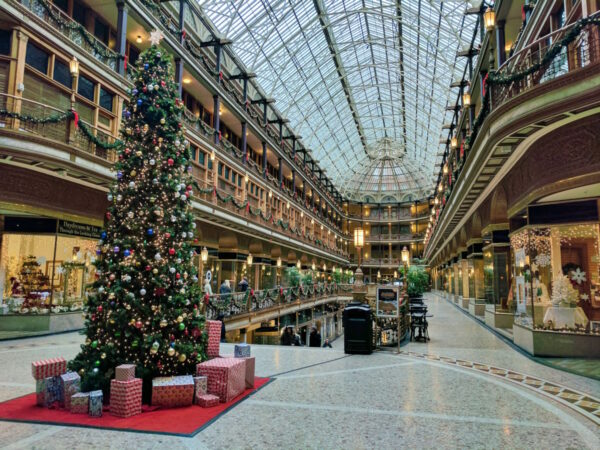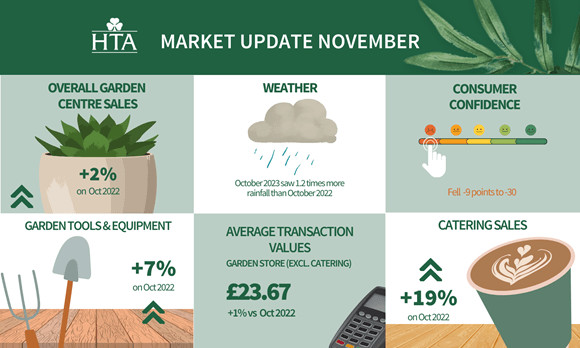 A survey by the Nottingham Building Society has revealed that 46% of shop owners blame the closure of local bank branches in the last three years for damaging their businesses, while 24% said it contributed to them going out of business within the last five years. Retailers are also being hit by lower footfall, with some 36% of consumers saying they would make fewer visits to their local town or village once their bank branch closed, and around 40% declaring that this would result in them making at least three fewer visits a month.
A survey by the Nottingham Building Society has revealed that 46% of shop owners blame the closure of local bank branches in the last three years for damaging their businesses, while 24% said it contributed to them going out of business within the last five years. Retailers are also being hit by lower footfall, with some 36% of consumers saying they would make fewer visits to their local town or village once their bank branch closed, and around 40% declaring that this would result in them making at least three fewer visits a month.
According to The Future Shopper report, a new breed of consumer will be using retail and leisure destinations across the globe by 2025. And their behaviour will be led by three trends that future retail destinations ‘must embrace’:
 Community Builders – Consumers will go to malls in search of communal experiences where the purchasing of products goes hand –in-hand with social interactions to drive loyalty to retail destinations. Stores will become hubs of activity, with ‘rewards’ such as exclusive products, immersive experiences that enhance brand awareness, or lifestyle services.
Community Builders – Consumers will go to malls in search of communal experiences where the purchasing of products goes hand –in-hand with social interactions to drive loyalty to retail destinations. Stores will become hubs of activity, with ‘rewards’ such as exclusive products, immersive experiences that enhance brand awareness, or lifestyle services.
Hero Hunters – Future shoppers will place increasing emphasis on brands’ ethical behaviours. They will seek out localised, community-oriented spaces that give back, or brands that specifically emply and support people from local areas.
Service Synergists – Shoppers will expect staff to be knowledgeable and enthusiastic collaborators in their purchasing experience.
The report by The Future Laboratory was commissioned by centre:mk’s joint owners, Hermes Investment Management and AustralianSuper.
 The Competition and Markets Authority has launched an investigation into the promotion of goods by social media stars on platforms such as Instagram and Snapchat after concerns that paid advertisements are not being properly declared.
The Competition and Markets Authority has launched an investigation into the promotion of goods by social media stars on platforms such as Instagram and Snapchat after concerns that paid advertisements are not being properly declared.
Retail sales beat expectations by climbing 0.7% in July compared with the previous month and by 3.5% on July last year, according to the Office for National Statistics. The improvement was mainly driven by heavy discounting by online retailers, with non-store sales rising 4.9% month on month as high street stores struggled.
High streets saw footfall growth of 0.3% in July, although there were declines for shopping centres (3.4%) and retail parks (0.5%), according to British Retail Consortium/Springboard data. The month saw an overall footfall decline of 0.8%. Only two regions witnessed growth in July – the West Midlands (1.6%) and Scotland (0.5%).
 The Advertising Standards Authority has banned Amazon’s one-day delivery advertisement for Prime members, describing the online retailer’s claim as ‘misleading’. The ruling follows 280 complaints from customers that their goods did not arrive on time.
The Advertising Standards Authority has banned Amazon’s one-day delivery advertisement for Prime members, describing the online retailer’s claim as ‘misleading’. The ruling follows 280 complaints from customers that their goods did not arrive on time.
The Visa UK Consumer Spending Index pointed to a renewed fall in consumer spending in July. Although the reduction was only slight (-0.9% on the year), this compared to increases in expenditure in the previous two months. Data signalled that the decrease in total spend was broad based with falls in both e-commerce (-0.5%) and face-to-face (-1.2%) spending on the year.
Mark Antipof, chief commercial officer at Visa, commented: ‘Food and drink, followed by hotels, bars and restaurants, saw the highest spending increases of all categories in July, which the warm weather and football clearly contributed to. However, retailers of household goods and those operating within recreation and culture noted significant declines, an indication that household budgets are stretched.’
Alan Monahan
















